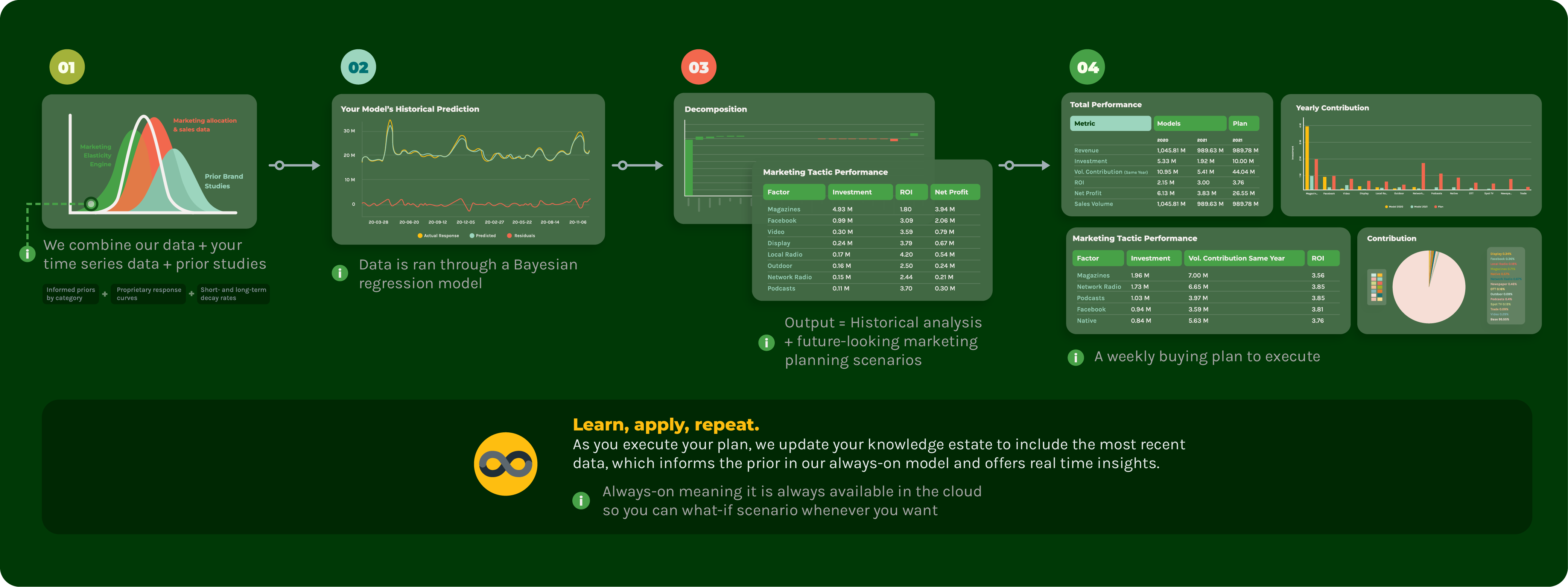In today’s rapidly changing market environment, the ability to anticipate and effectively respond to potential future scenarios is more crucial than ever before. Scenario-based marketing planning emerges as a strategic approach designed to help brands navigate through uncertainties with confidence. This methodology involves identifying and analyzing possible future events or conditions—ranging from economic shifts, technological advancements, competitive movements, to consumer behavior changes—and developing strategies to address each potential scenario.
By employing scenario-based marketing planning, brands are not only able to mitigate risks but also seize opportunities that may arise from future market dynamics. This approach requires a thorough understanding of the current market landscape, predictive analysis, and creative thinking to envisage various future states. Scenario planning equips marketers with a proactive blueprint, enabling them to adapt quickly and maintain a competitive edge in ever-evolving markets.
Keen's Approach to Scenario-Based Marketing Planning
At Keen, we recognize the vital role of scenario planning in equipping businesses to thrive amid market uncertainties. Our approach to scenario-based marketing planning is designed to empower brands with actionable insights and strategic flexibility, positioning them for success in any future market environment.
Building a Baseline for Effective Scenario Planning
The foundation of effective scenario-based marketing planning lies in building a solid baseline, a comprehensive understanding of the brand’s past and current performance and strategy. The Keen Platform makes this process seamless through our comprehensive lists of integrations and easy file management system. This process is outlined below and in our bayesian regression blog.

Scenario Planning in Action: Real-World Applications
With Keen’s scenario planning features, Twinings was able to:
– Predict the financial impact of each of its channels—digital, online and trade—to compare and make decisions. This unified measurement sets a new standard for marketing decision support.
– Optimize in real time to model a prescriptive, weekly plan to drive incremental revenue without spending past the point of diminishing returns when timing was optimized.
– Identify key investment opportunities in under used tactics.
Read the full Twinings case study.
Future Forecasting and Competitive Analysis and Crisis Management
Scenario planning is more than prediction; done well it is an exercise in anticipation with an emphasis on preparing for the unpredictable. By incorporating future forecasting and competitive analysis into scenario planning, businesses can evaluate various market conditions, technological advancements, consumer behavior changes, and potential moves by competitors.
For instance, the Keen Platform can help your team simulate the likely performance of a competitor and consequently you can make strategic decisions for the health of your brand.
In addition to a dynamic market, today’s marketer has to anticipate crises that can emerge unexpectedly, driven by factors such as technological failures, natural disasters, or social and economic disruptions. This preemptive planning ensures that businesses can mitigate the impact of crises, maintaining brand integrity and customer trust during challenging times. This was especially relevant during Covid. Keen helped marketing teams navigate supply chain and consumer behavior disruptions and our scenario planning capabilities allowed the teams to pivot their marketing strategies to adjust to these external factors.
For example, one global retailer might use scenario planning to prepare for supply chain disruptions caused by geopolitical tensions or natural disasters. By identifying alternative suppliers and logistics routes in advance, the company can ensure continuity of operations and minimize any negative impact on customer satisfaction and financial performance.
The Keen Platform allows marketing teams to manage risks almost as dynamically as hedge funds.
Implementing Scenario Planning in Marketing Strategy
Integrating scenario planning into a marketing strategy equips brands with the foresight and flexibility to stay ahead in a turbulent market environment. By anticipating future developments and preparing for various outcomes, businesses can seize opportunities and mitigate risks more effectively.
Steps to incorporate scenario planning
To successfully integrate scenario planning into marketing strategy, businesses should follow these steps:
| Steps to integrate scenario planning into marketing strategy | |
|---|---|
| Identify key drivers of change | Determine the critical factors that could influence the business environment, including technological trends, consumer behavior shifts, regulatory changes, and competitive dynamics. |
| Develop scenarios | Create a range of plausible scenarios based on the identified drivers, considering both optimistic and pessimistic outcomes. |
| Analyze implications | Evaluate the potential impact of each scenario on the organization's marketing strategy, identifying opportunities and threats. |
| Formulate strategies | Develop flexible and adaptable marketing strategies that can be quickly deployed based on the unfolding scenario. |
| Monitor and review | Continuously monitor the business environment for signs that a particular scenario is becoming more likely and adjust the marketing strategy accordingly. |
Conclusion: The Strategic Advantage of Scenario-Based Planning in Marketing
Scenario-based planning represents a strategic cornerstone for enterprises seeking a proactive stance in their marketing strategies. This approach allows organizations to navigate the complexities of market dynamics with a forward-thinking mindset, equipping them with the agility to adapt to unforeseen circumstances rapidly. By incorporating scenario planning into their marketing strategy, companies are not only preparing for potential challenges but are also positioning themselves to seize emerging opportunities before their competitors do.
The benefits of scenario planning using the Keen Platform are:
- Enhanced decision-making agility in a dynamic and interactive go-forward framework
- Rapid competitor analysis and marketing measurement
- Risk management, hedge your strategy among likely scenarios
Want to see our scenario planning functionality in action? Take a tour of the platform today!
